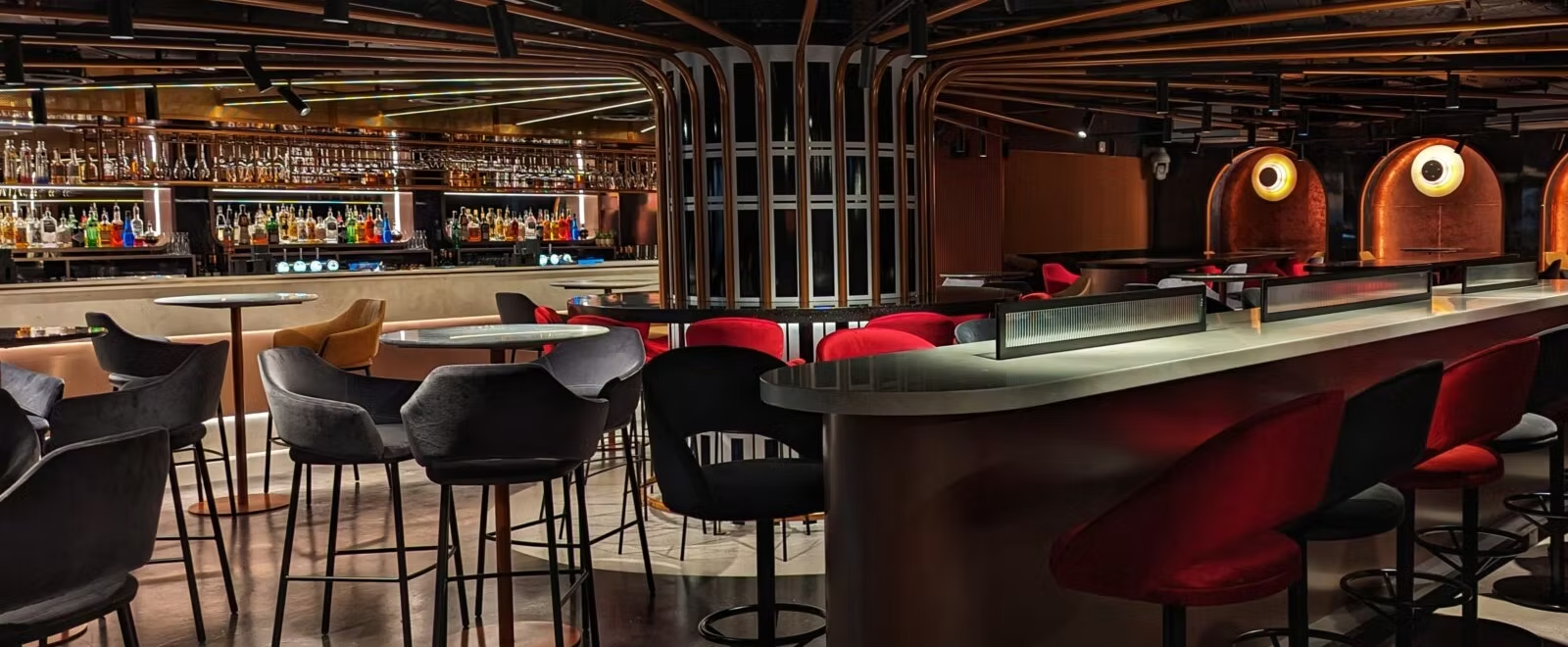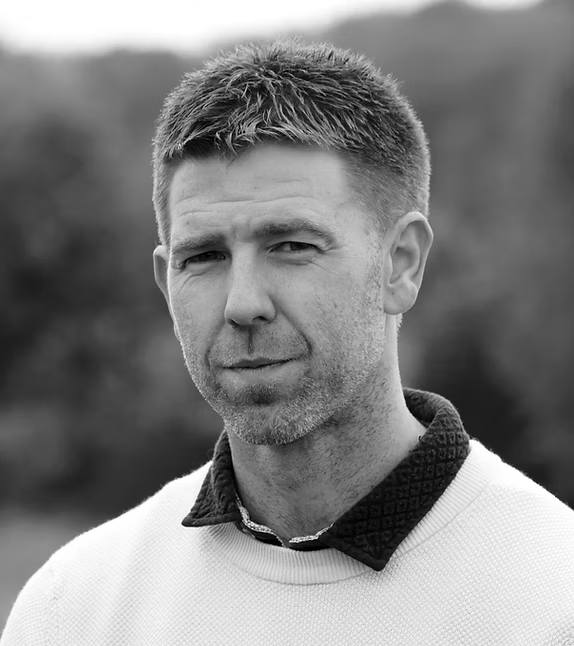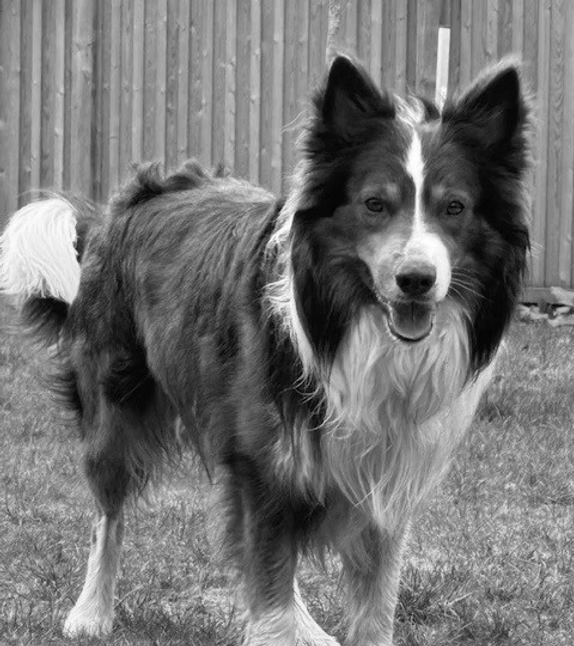
The world was just emerging from the pandemic when Danny Potter FCSI got the phone call that would shape his career path. “Kevin asked me to come into the office. I walked in and he said: ‘I’m closing KCCJ, you’re going to be made redundant.’ I wasn’t surprised – it had been on the cards.”
What happened next was, perhaps, more unexpected. KCCJ had a number of ongoing relationships and contracts with major sports venues – including Tottenham, Liverpool and Leicester football stadiums – and owner Kevin Slatter didn’t want to simply discard them, or his staff. “‘There’s a separate trading company, called Invito, that’s never been used,’ he said. ‘I want to sell it to you, with all of the current client base.’ And so he did – for nothing. He paid for all of our licenses and insurances too.”

Alongside Ahmed Youssef, also from KCCJ, Potter (pictured, above) embarked on his new business venture with some trepidation. “It looked like a lot of work and we knew we couldn’t afford to hire anyone,” he says. “We knew what we needed to turn over to survive. I thought we’d be lucky if we got through year one. Didn’t quite work out that way.”
Invito sailed past its target turnover for year one, then beat that by more than 50 per cent for year two. Needless to say, the hiring freeze was lifted. “We were talking to some of the biggest architects and design teams in the world and we had these Word documents with a bit of text on them,” says Potter. “I can draw a kitchen, but for some clients, these high-level reports are at least as important.”
And that’s where Mia Carpenter (pictured, below), Invito’s creative director, comes in. “The buy-in from architectural teams, knowing that we can produce these quality reports in InDesign – it’s made a massive difference,” says Potter.

Humble beginnings
Potter started working at the local hotel as a teenager, polishing glasses and “partying with the chefs”, before moving into the hotel kitchen. “I remember my first day quite vividly. The first job they gave me to do was fillet salmon,” he recalls. “Turns out now I’m allergic.”
After a while, Potter pivoted to sports events catering. He travelled some of the lesser-visited parts of the UK– “you just float from one event to the next, wherever they might be” – before moving first to Canada, then New Zealand. “I only came back to apply for a visa so I could emigrate,” he says. “But then I got myself a border collie and all my plans changed.”
Instead of fleeing the UK, Potter hunkered down as head chef at the QE2 Exhibition Centre on London’s Parliament Square. “We went on quite a journey with that venue. They had a very antiquated approach to food, stuck in the 80s and 90s.” And it wasn’t just the psychology that needed updating. “One of the ovens, you had to treat it like the Fonz from Happy Days,” he recalls. “Give it a whack on the side and it would start working.”
It was during his stint at the QE2, when KCCJ began working on the contract, that Potter first met Slatter. “Our project manager came to me and said: ‘My boss wants a favor.’ He was working on the Tottenham Hotspur stadium at the time, and wanted an opinion on what they could serve in that bridge they have. Everyone was telling him they could only do sandwiches.”
His savvy recommendations must have stuck in Slatter’s mind. Several years later, when a contract he was working on for Burberry effectively got cancelled, someone from KCCJ, who’d also been in that meeting, asked him what his next move was going to be. “I told her I’m heading to the job agency,” he says. She convinced him to hold that thought. Ten minutes later, Slatter called him with a six-month job offer: “I don’t think they knew what to do with me. They just thought it was a good idea to give me a job.”
And that’s how Potter moved from cheffing to foodservice concept design. He’s particularly proud of the Spurs job – noting that it is “holistically, from a food and drinks point of view, one of the very best stadiums in the world,” but that plans can never fully anticipate how humans will function within that environment.
“I was talking to the cellar manager, watching how they operated and suddenly it seemed obvious that it would be easier to move the beer taps so they were all together rather than mirroring the bar setup. He reckoned it would save him half a day to a day per cellar per event. With 30 events a year and 10 cellars, that’s more than a day’s worth of labor.”
The future
As it moves into its fourth year of business, Potter has good reason to be optimistic for the future: “In the last three years, we’ve worked on 22 different stadiums and arenas. Unfortunately, most of the projects we’re working on now we can’t mention specifically though – we’re NDA’d on those.”
Potter wants to see the industry doing more to tackle its embodied carbon, and is close to bringing a sustainability director on board. “Much like Kevin did with me, I’m not exactly sure how it’ll work, but I just feel there’s a big opportunity to work with clients and the industry to move things forward,” he says. Invito has already begun gathering real-time data with a view to making capex and opex savings. “In reality, it’s about optimizing hospitality waste products.”

Although Floyd, Potter’s first border collie, has since passed away, Floyd’s successor, Brew (aka “Muppet”, pictured) – also a border collie and Invito’s “office manager” – has taken on the role of running Potter’s life. Work, while important, comes second. “My dog’s wicked. My life revolves around him. He’s the feature of all of our Teams calls.”
Sam Noble
